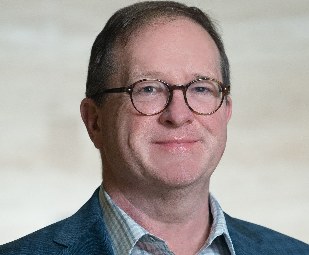Having been in healthcare for over 30 years as a clinician and working for four health plans, I am fortunate enough to have had exposure to a very broad network of healthcare professionals and have a deep understanding of healthcare systems and structures. I have also been an out gay man for that entire time. As a clinical social worker, I consider myself highly resourceful and am able to advocate for my own healthcare needs -– and fortunately, I have a very limited number of health risks and only minor ongoing health concerns.
So of course, there have been occasions when I have needed to find healthcare providers when my husband and I have relocated from one area to another, or when I have had healthcare needs that required specialty care. It stands to reason that I would be able to identify providers whom I could trust, speak openly with about my needs and concerns, and with whom I could do so with relative ease and reasonably quickly. Turns out that in my experience this has not been the case. The same goes for many others I have spoken with in the LGBTQ+ community, which can have significant implications for the community.
The LGBTQ+ Foundation reports that one in five lesbian, gay and bisexual patients say they have delayed receiving healthcare due to their sexual orientation and concerns regarding their ability to find an LGBTQ+ provider or an ally. It is likely that the number is even higher for trans and gender nonconforming people and LGBTQ+ people of color.
The Participatory Medicine Manifesto provides a very helpful framework for LGBTQ+ patients looking for providers who can understand them and whom they can trust, although there can be challenges as well. Here are some of the unique aspects of this which some LGBT+ people may experience:
Share and Listen – some trans men may have difficulty finding GYN providers who feel comfortable providing preventive care including regular pap smears and other wellness services.
Respect One Another – LGBTQ+ patients may be reluctant to share details re: intimacy, feelings and fears about regarding sexual experiences. This may be particularly true among older children and adolescents.
Share information Responsibly – not surprisingly many LGBTQ+ people experience an enormous amount of shame about gender and/or sexual orientation and can be quite reluctant to provide important information. This might include emotional health, as well as sexual health, for example. Many years ago, when I was looking for a therapist I saw a clinical social worker who believed in conversion therapy and suggested that he believed that homosexuality was something that developed as a result of one’s environment. Needless to say, I didn’t return to see that therapist.
Promote Curiosity – it is likely that unless someone is certain that their provider is also LGBTQ+ or an ally, LGBTQ+ patients may believe that providers will not want to engage in meaningful, open conversations about deep feelings, concerns and fears about their health, treatment choices and including family members and loved ones in their care. Again, this can promote the likelihood of LGBTQ+ patients delaying care or avoiding care entirely. I had a primary care physician for several years whom I trusted and respected, although during the time I saw him, I became increasingly aware that he rarely asked about my relationship with my husband or for that matter, anything related to my being gay. While there were rarely specific concerns on my part in this regard, I eventually felt that I needed someone whom I felt I could be comfortable discussing certain topics, so I have found a new primary care physician whom I trust a great deal.
Be a team builder – being queer can be a very lonely experience and may lead to isolation, difficulty asking for help and knowing how to engage providers in a way that feels supportive and inclusive.
As a new member of the Society for Participatory Medicine’s (SPM) board, I am very excited to be a part of such an important group and am hopeful that there are ways in which SPM can impact some of these challenges that LGBTQ+ as well as other groups who experience high levels of health inequity and disparities.
Tim Blevins, LCSW, MBA recently joined the SPM Board. He is a healthcare executive with proven behavioral health, strategic leadership, operations, and integrated medical/behavioral system innovation for Fortune 500 multi-national, US national and middle market companies domestically and globally.
Did you enjoy this blog? Sign the Manifesto and learn more about becoming a member.







Excellent article!
Thank you, Lissie Brooks!! This is a wonderful organization!